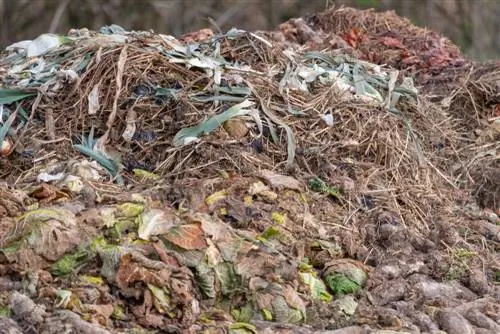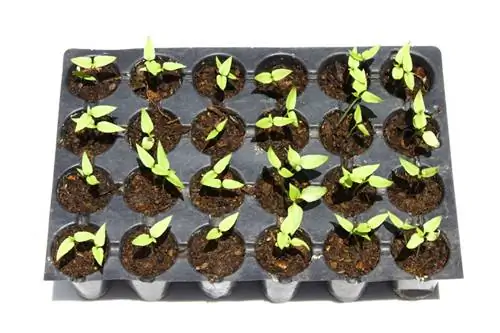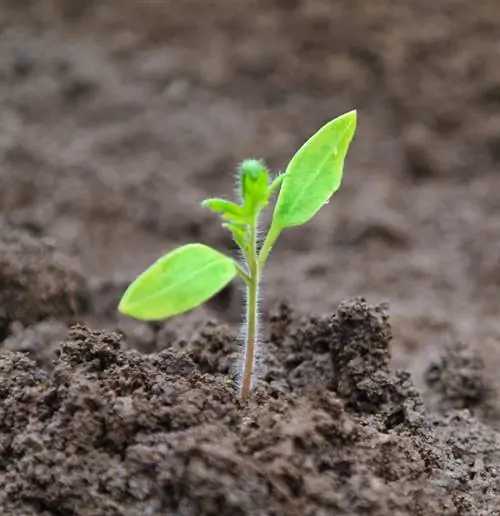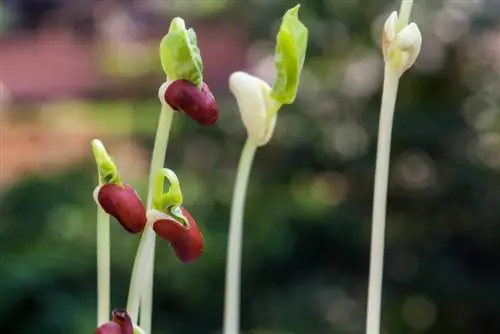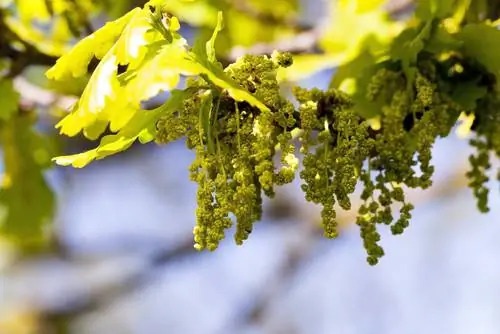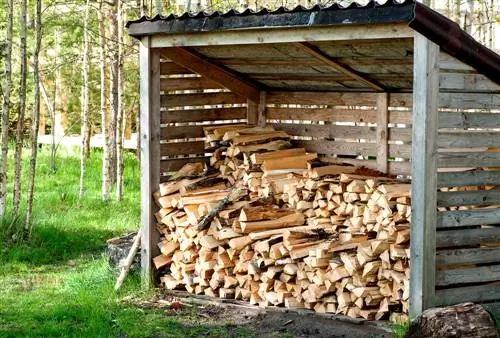- Author admin [email protected].
- Public 2023-12-16 16:46.
- Last modified 2025-01-23 11:21.
A well-ripened compost needs time so that the soil organisms can produce the fine crumb structure. But you can also use the compost for soil care beforehand.
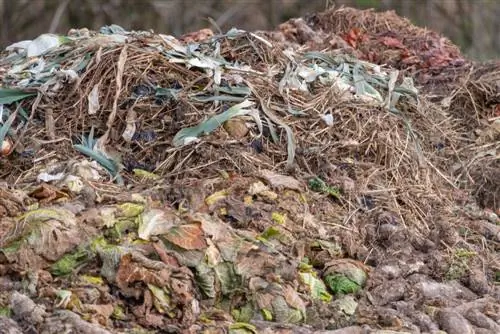
How long does composting take?
Composting time varies depending on conditions and materials. In three development phases - degradation phase, conversion phase and construction and cooling phase - a well-ripened compost is created within 6-12 months, which can be used for soil care and plant cultivation.
The three development phases
- Dismantling phase
- Reconstruction phase
- Build-up and cooling down phase
Dismantling phase
Start preparing the compost pile in the spring so that the contents can rot over the summer. The dismantling phase takes place in the first one to two weeks. There are high temperatures inside the compost heap, between 60 and 70 degrees Celsius. Rotting processes in this temperature range are referred to as hot rotting. The temperatures arise from the activity of bacteria and yeasts that break down carbohydrates and proteins. The high temperatures kill germs and bacteria and ensure that the seeds of weeds are killed.
Reconstruction phase
After the hot rot, the conversion phase begins, which lasts about four to five weeks. Cap fungi settle in the compost and convert fats and waxes into brown humic substances. The temperatures in the compost gradually cool down.
Build-up and cooling down phase
In the third and final phase, build-up and cooling processes take place. This phase lasts several months depending on weather conditions. The soil fauna, consisting of worms, mites and woodlice, shred the organic material and decompose it into compost.
Fresh compost and mature compost
After about three to four months you can already use the coarse compost. The compost soil contains non-rotting plant parts such as cuttings from trees or other plant residues that contain cellulose. This fresh compost is used for soil care. You can use it for mulching and apply it as a protective layer to harvested beds. During this time you can move the compost to speed up the rotting process.
The compost continues to ripen during the summer. Under optimal conditions, ripening compost is created after about four to six months. Since conditions tend to fluctuate, you need to allow six to twelve months for crumbly soil with a fresh smell of forest floor to develop. If you make the compost in autumn, the rotting processes will rest over the cold winter. This compost takes longer to fully mature.
After a year the cycle starts again. The last remaining organic substances are broken down. This stale substrate is ideal for growing seedlings and as potting soil.

